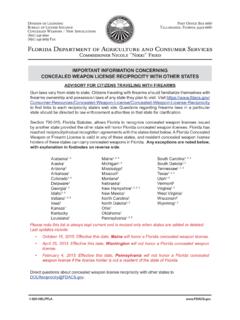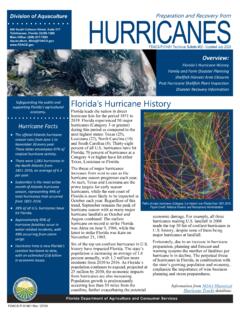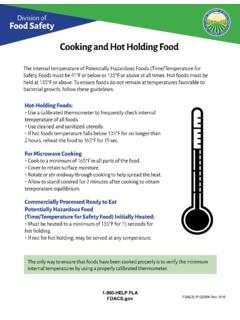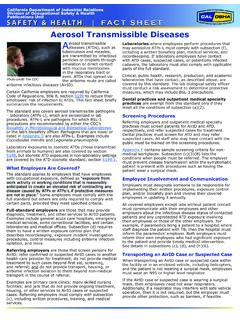Transcription of Important Zoonotic Diseases DISEASES
1 Important Zoonotic DISEASES Below is a partial list of Zoonotic DISEASES that may be spread from animals to humans. Bovine Spongiform Encephalopathy (BSE, mad cow disease) Brucellosis (Brucella spp.) Campylobacteriosis (Campylobacter spp.) Cat Scratch Disease (Bartonella henselae) Cryptococcosis (Cryptococcus spp.) Cryptosporidiosis (Cryptosporidium spp.) Escherichia coli 0157:H7 Giardiasis (Giardia lamblia) Hantavirus (Hantavirus Pulmonary Syndrome) Herpes B (Herpes virus 1) Histoplasmosis (Histoplasma spp.) Hookworm (Ancylostoma caninum, A. braziliense, Uncinaria stenocephals) Leishmaniasis (Leishmania spp.)
2 Leptospirosis (Leptospira spp.) Lyme Disease (Borrelia burgdorferi Infection) Lymphocytic Choriomeningitis Monkeypox Plague (Yersinia pestis) Psittacosis (Chlamydia psittaci) Q fever (Coxiella burnetti) Rabies Raccoon Roundworm Infection (Baylisascaris procyonis) Ringworm (Microsporum spp. and Trichophyton spp.) Rocky Mountain Spotted Fever (Rickettsia rickettsii) Roundworm (Toxocara canis, T. cati, and Toxocara leonina) Salmonellosis (Salmonella spp.) Tapeworm Infection (Dipylidium caninum) Toxoplasmosis (Toxoplasma gondii) tuberculosis (Mycobacterium tuberculosis ) Tularemia (Francisella tularensis) West Nile Virus Yersiniosis (Yersinia enterocolitica) Zoonotic DISEAAND PREVENTION MEASURES SES For additional information on Zoonotic DISEASES , contact your physician, your veterinarian, the Florida Department of Health at (850) 245-4401 or the State Veterinarian s Office Telephone: (850) 410-0900 Toll Free: 1-877-815-0034 Fax: (850) 410-0916 24-Hour Reporting: 1-800-342-5869 E-mail.
3 Division of Animal Industry Florida Department of Agriculture and Consumer Services FDACS-P-01821 Rev. 02/18 Zoonotic DISEASES People who have close contact with animals, whether it is pet owners, livestock producers, or animal health providers, can be at increased exposure to Zoonotic (transmitted between animals and humans) DISEASES . Transmission of DISEASES can occur when persons pet, touch, feed, or are licked by animals. Disease transmission can even occur in the absence of direct animal contact if the infectious agent is disseminated in the environment. Disease transmission has occurred by contact with contaminated bedding, flooring, barriers, other environmental surfaces, and contaminated clothing and shoes.
4 Illness may also result from ingesting contaminated food and water. Prevention Measures Hand Washing Hand-washing is one of the most effective ways to prevent the spread of disease. Use warm water and soap for a minimum of 20 seconds. Supervise children to ensure proper hand-washing. Antimicrobial hand gels can be effective even when hands are not visibly dirty. Wash your hands: AFTER - contact with pets or other animals; cleaning up pet feces, cages or changing litter boxes. BEFORE - preparing food; eating; or contact with infants and young children. Clean and Disinfect Environment Remove and dispose of animal feces daily.
5 Disinfect litter boxes, animal crates, and birds cages once a month. Remove pet waste in yards. Avoid direct contact with animal feces. Cover outdoor sandboxes when not in use. Keep litter boxes away from kitchens and eating areas. Personal Protection While Outdoors Bats, skunks, foxes, and especially raccoons in Florida, can be infected with rabies if bitten, contact a physician immediately. If it is possible without injury, capture the animal for testing. Pet food can attract wild animals; ensure outside pet food containers have tight lids. Avoid insect vectors ( , ticks and mosquitoes) that can spread animal DISEASES to humans.
6 Avoid peak insect activity times ( , dusk and dawn for mosquitoes). Wear long-sleeved shirts and long pants while outside and exposed to insect vectors. Use insect repellent containing DEET or PIRCARIDIN. NOTE: DEET should not be used on pets. Use insect vector control measures around your home. Remove or drain stagnant water sources to minimize mosquito breeding areas. Empty and clean birdbaths and pets water bowls at least once a week. Children and Animals Children, especially those five years old and younger, should always be supervised while interacting with animals. Do NOT let children: Put their hands or other objects ( , pacifiers) into their mouths after playing with animals or in animal areas.
7 Play roughly with animals to avoid bites and scratches. Kiss animals or allow animals to lick the child s face. Allow animals to sleep with them. Pet Health Keeping pets healthy can minimize Zoonotic DISEASES . Keep vaccinations current, especially rabies. Have your pet checked regularly for parasites. Use a veterinarian-recommended tick and flea prevention product(s). Do not allow pets to interact with wildlife. Do not allow your pet to eat other animals feces. Do not feed raw or undercooked meats to your pet feed pets a high-quality commercial pet food. High Risk People A person s age or health status may affect his or her immune system, increasing the chances of contracting a Zoonotic disease.
8 These people include: Infants and children less than five years old. Elderly persons. Pregnant women. People undergoing treatments for cancer. People who have received organ transplants. People with HIV/AIDS.
















